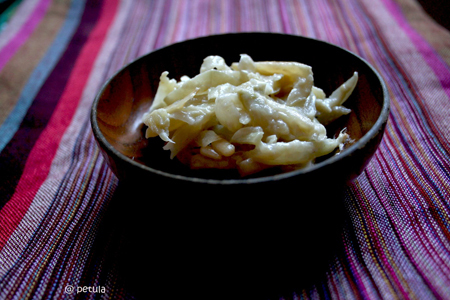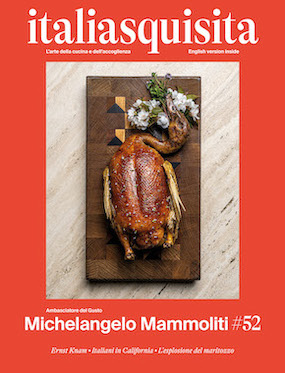Homepage
A bit of… macrobiotic cooking!

What is the Macrobiotic philosophy? We asked the t foodblogger Cuoca petulante!
Specific features of the macrobiotic diet
Both Osawa and Kushi, the fathers of macrobiotics, support that with the macrobiotics you can achieve physical, mental and spiritual health. The food is one of the elements to it. For food there it is based on a pyramid of food which provides a prevalence of whole grains, seasonal and local, the reduction or elimination of all that is chemical and artificial, including white sugar and cane sugar, and of the blocking foods like dairy products, but this is a trivial simplification of a philosophy that sees food as an important part of human life and who wants to reflect on the fact that everything you put in the body, from the air to the sandwich, has an effect on it, and of course our environment and daily activities. This means that an Eskimo and an employee of the center of Milan cannot eat the same way, because of the rhythms and styles of life. Linked to traditional Chinese medicine, the acupuncture and the Taoist philosophy, macrobiotics is above all a journey not just a food choice, if you only think like that or you try to simplify it (which unfortunately happens in the West in general, trying to reduce all at a list of ingredients) will lose its true meaning and benefit for the body.
It would be correct to use the term "macrobiotics medicine"?
The food in traditional Chinese medicine is always part of the cure or treatment itself, only in allopathic medicine it is almost entirely neglected, although in recent times, even in the West, there is a greater attention. The macrobiotic see in food a system of care and shows that it is not important the symptom (the cough or the pimple) but to understand the source of the illness; you learn to manage your body and especially to listen seriously and see signs of what is bad or good. You can discover recipes that are macrobiotic healing, the same as miso soup, but also food for healing yourself as ginger, the umeboshi or some algae and learn how to use them.
Yin Yang elements in macrobiotic philosophy
It is not easy to answer a question like that unless you have the space of a book to make a summary or a cheatsheet is not of my comfort zone, not by chance that I am arrogant. All food, as well as every moment of life and every element of nature, has a yin or yang energy prevalent, but since it is energy may change with time, seasons, heat or cold and with this energy we can work or play and heal. An onion is yin if eaten raw with its spicy flavor, as it becomes yang and sweet when it is cooked a long time. Macrobiotics has the beauty of continuous discovery and the absolute lack of boredom. The suggestion that often do is to read two wonderful books, “Guarire con il cibo” by Grazia de Francesco and The New Book of Macrobiotics by Mikio Kushi.
Published on: 14-11-2010




